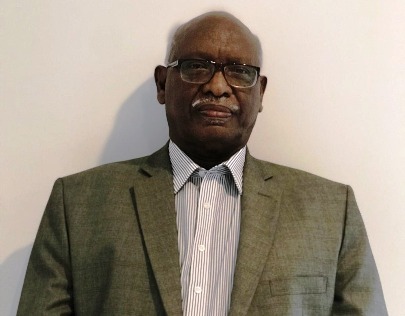
By: Zein Al-Abidin Saleh Abdel Rahman
In his Independence Day speech, Chairman of the Sovereignty Council and Commander-in-Chief of the Army, General Abdel Fattah al-Burhan, outlined the military institution’s vision. He emphasized the need to eliminate militias, whether militarily or through negotiations, ensuring they have no future role. He also stressed that the political process should commence after the cessation of war, with a political dialogue that includes all forces within Sudan.
Assistant Commander-in-Chief of the Armed Forces, General Yasser Al-Atta, elaborated on these points, emphasizing the necessity of eliminating militias militarily or through negotiation, alongside judicial trials for all politicians and others involved in the war. These statements by the two military leaders serve as a roadmap for both the military and the future political process. They carry significant political implications for managing the military and political conflicts in the country.
Political positions, whether supportive or opposing, are being shaped in response to these statements. If there are opposing political forces, they are likely to critique these positions or propose alternatives, highlighting that the military is the one presenting the political dialogue agenda while others react to it.
The striking aspect of this scenario is the lack of initiative from political forces to present their vision ahead of the military. This indicates that political parties lack alternative visions and are in dire need of organizational and intellectual reform, as well as a change in leadership that has failed to manage the conflict and contributed to the war. Such leadership is ill-suited to participate in the political process after the war ends. If they do participate, they will likely hinder any political process, as they are more adept at justifying their mistakes and finding scapegoats for them.
The lingering influence of outdated leftist ideologies, which history has surpassed, poses a significant obstacle to any step toward national dialogue. It seems those adhering to this culture might need a new wave of reformist thinkers to guide them, akin to Henry Cohen or others to revive the legacy of Michel Aflaq and Salah al-Bitar with fresh critical perspectives.
The Case of Abdel Rahman Al-Sadiq Al-Mahdi
Another issue that has sparked debate is the promotion of Abdel Rahman Al-Sadiq Al-Mahdi to the rank of Lieutenant General and his subsequent retirement. Some of his relatives perceived this as an attempt to undermine the Al-Sadiq Al-Mahdi family. Such a perspective demonstrates shortsightedness and a lack of political acuity, possibly influenced by the hysteria among militia leaders.
From the time of Abdel Rahman’s visit to the Al-Mahdi Dome and his speech there, it was clear that his retirement from the military was imminent. In his politically charged speech, Abdel Rahman expressed his preference for political over military work, emphasizing Sudan’s unity and support for the military institution. This was followed by his visit to Cairo, where he met with Jaafar Al-Mirghani and issued a political statement.
These developments indicate that Abdel Rahman intends to play a political role amid the shifting political landscape, especially as some leaders within the Umma Party—the party leader, secretary-general, and others—have aligned with militias, providing them with political backing. Abdel Rahman’s stance seems to aim at rescuing the party from its alignment with militias, potentially sparking a new internal conflict within the party.
Shifts in Political Alliances
Another significant issue is the fundamental changes in political alliances. In the past, Egypt would not take any steps regarding Sudanese affairs without consulting certain Unionist leaders. However, since the December revolution, Egypt has engaged with a broader and entirely different spectrum of political actors. Unionist leaders now learn about Egyptian policies through media outlets, like everyone else. Egypt has found a new group of politicians it believes are more capable of offering practical perspectives.
This shift indicates a changing thought process in the broader political landscape, while political institutions (parties) continue to suffer from weak leadership that lacks intellectual capacity and fails to provide solutions.
May God grant us wisdom and insight.



